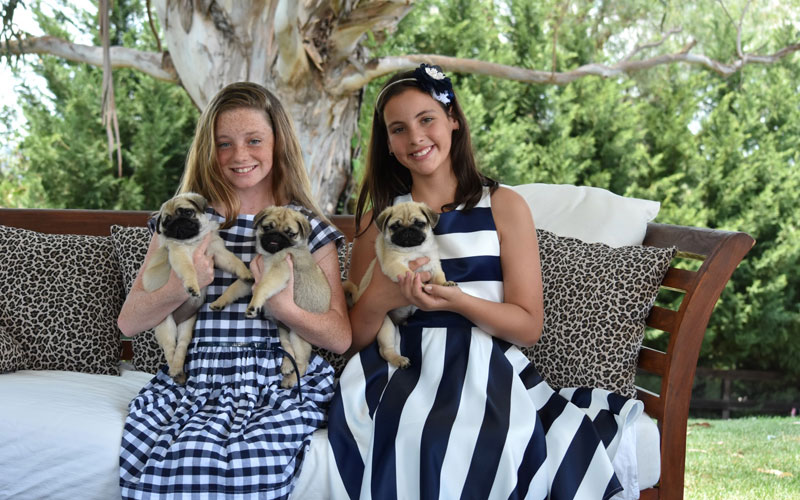Join the movement to keep healthy puppies in homes, where they belong
Australian National Kennel Council (ANKC) pedigree dog breeders are devoted to their dogs and want to see their puppies live long, happy and healthy lives in forever loving homes. Sadly, some dogs suffer from hereditary problems and require ongoing veterinary care, which can be expensive and heartbreaking for everyone.
The ANKC, the peak body for responsible and ethical breeders in Australia, has launched a public and breeder education movement to complement the RSPCA and Australian Veterinary Association’s joint initiative, Love is Blind, to raise awareness of the animal welfare problems caused by exaggerated physical features and how these problems can be prevented.
“Love is blind, except, it doesn’t have to be,” said Hugh Gent OAM, President of the ANKC. “The ANKC considers the health and physical welfare of dogs of prime importance and does not support the breeding of dogs with exaggerated features to meet a puppy buyer demand for a certain look.”
ANKC registered breeders who abide by the Council’s breeding codes and guidelines give careful consideration to health issues, temperament and genetic screening, as well as individual care and placement of puppies in proper homes, explained Mr Gent.
“The ANKC continuously reviews Breed Standards to reflect their responsible breeding policy, as well as educating breeders and judges through ANKC membership to breed and exhibit healthy, sound dogs,” he said.
Not all short-nosed breeds have health problems
Addressing concerns about the health and wellbeing of brachycephalic (short-nosed) breeds, veterinarian Dr Karen Hedberg, ANKC Canine Health and Wellbeing Committee Chair, said many brachycephalic breeds, such as Pugs, French Bulldogs and British Bulldogs, may be short-faced but not necessarily have breathing difficulties.
“The breeds that tend to have breathing difficulties have both short noses and loose skin folds. Current ANKC recommendations are not to breed with severely affected individuals,” she said.
A recent ground-breaking study¹ at Cambridge Veterinary School, UK, showed dogs can be properly sorted into precise groups of degree of breathing difficulties which will make selection of breeding animals more reliable. The ANKC is considering importing similar testing chambers to Australia, said Dr Hedberg.
To promote the health, functionality and longevity of dogs, many ANKC Breed Clubs also run genetic health schemes, such as CHEDS (Canine Hip and Elbow Dysplasia Scheme) and ACES (Australian Canine Eye Scheme). Through the Canine Research Foundation, the ANKC also actively supports and funds scientific research with various Australian universities for the benefit of all dogs. Funding for the CRF comes from a levy on each puppy registered with the ANKC.
Educate yourself – give responsibility to buyers
- Do not buy online
- Do not impulse buy
- Do your homework
- Visit the breeder to meet the puppy and its parents
- Only buy puppies from ANKC registered breeders
- Contact ANKC Breed Clubs for information
For more information about the ANKC and affiliated Member Bodies, visit www.ankc.org.au.
For updates on ANKC canine health screening initiatives, follow ANKC Canine Health and Wellbeing. Also check out Forensic View of Puppy Breeding in Australia.


Leave a Reply